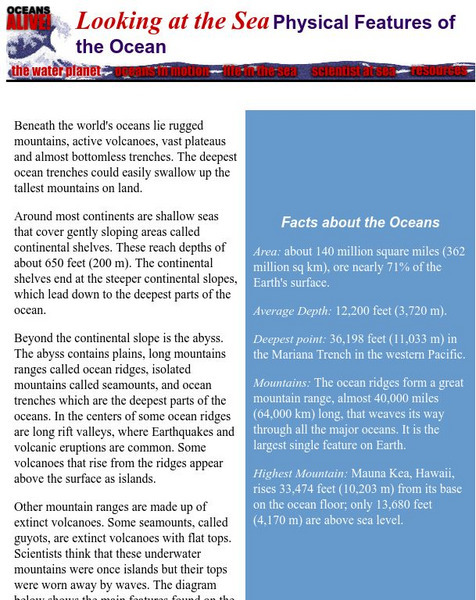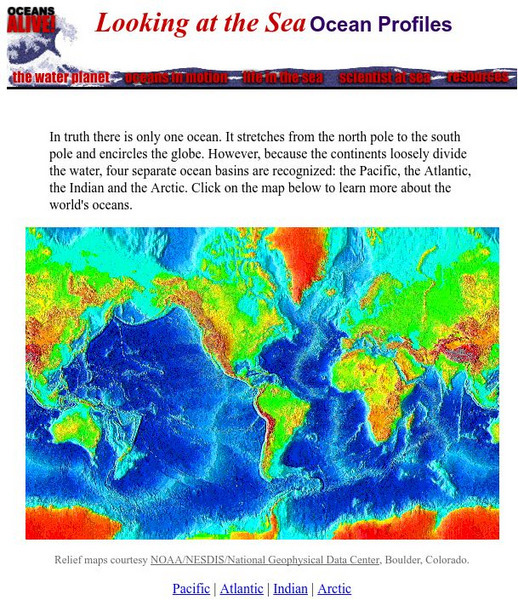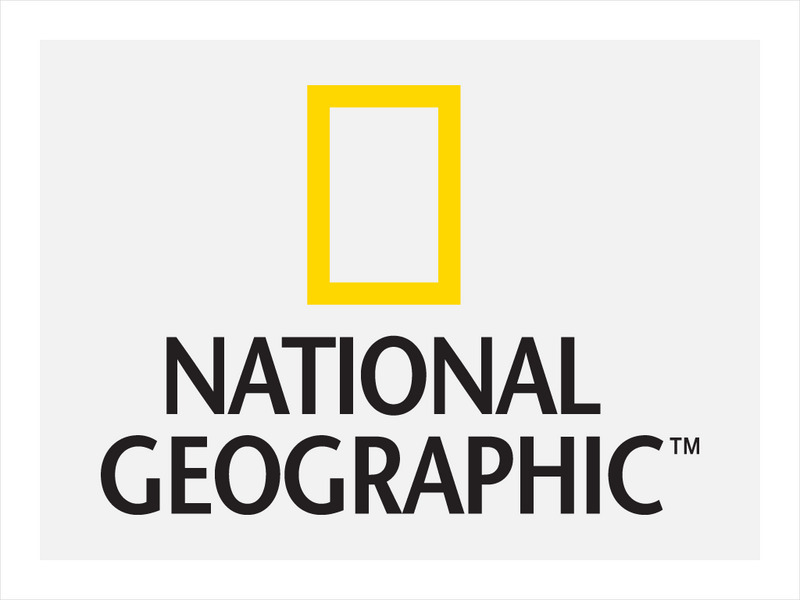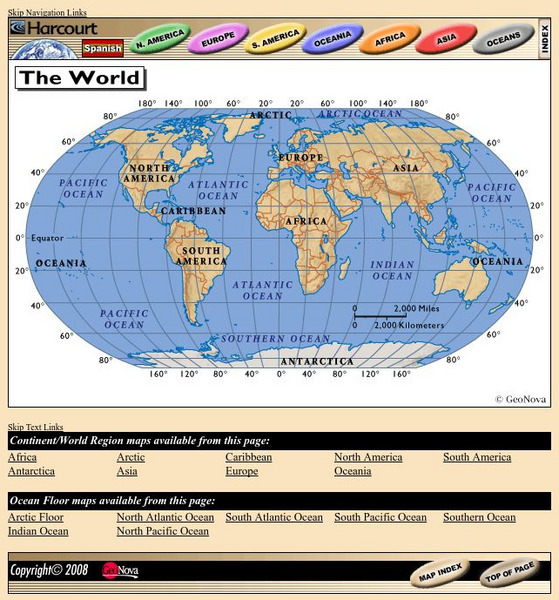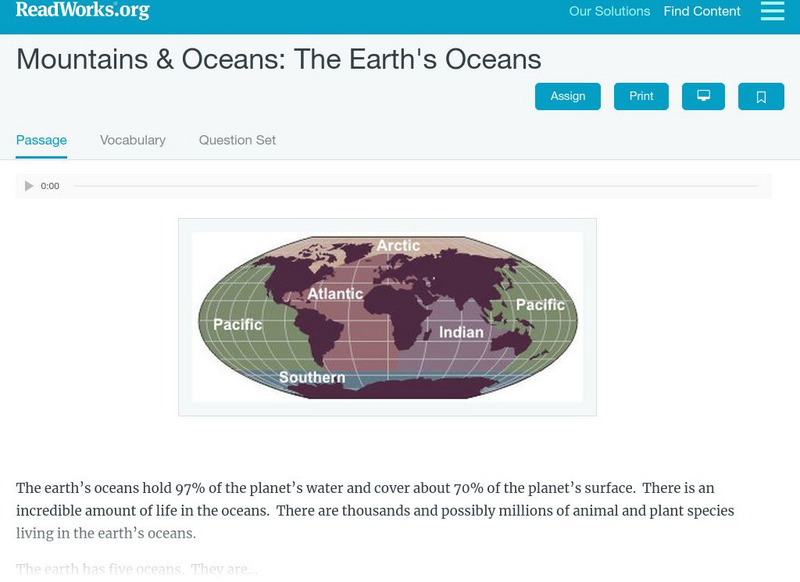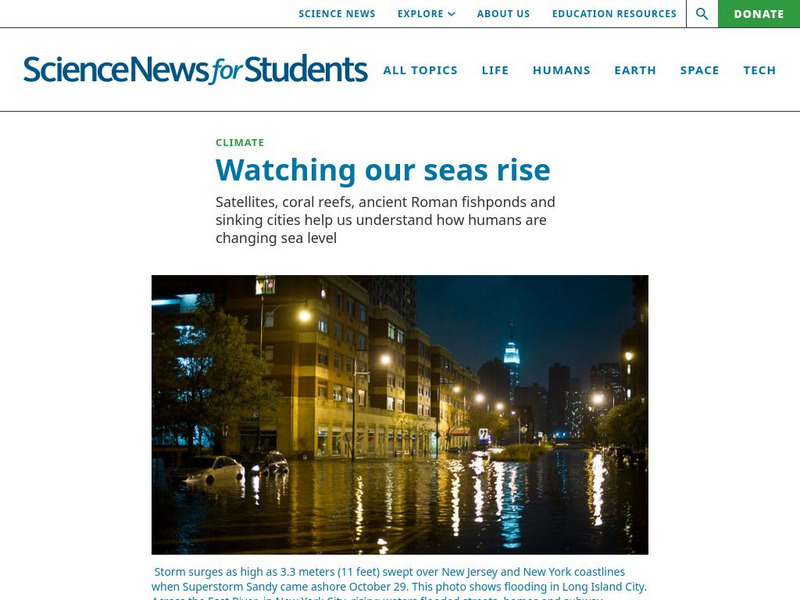Hi, what do you want to do?
Curated OER
Breaking News English: Loss of Nature Will Damage Economies
In this English worksheet, students read "Loss of Nature Will Damage Economies," and then respond to 1 essay, 47 fill in the blank, 7 short answer, 20 matching, and 8 true or false questions about the selection.
Lizard Point Quizzes
Lizard Point: World Oceans and Continents Quiz
Test your geography knowledge by taking this interactive quiz over the world's continents and oceans.
Natural History Museum
Natural History Museum: The Oceans
This online exhibit from the Natural History Museum is home to ten units covering various aspects of the world's oceans including frozen oceans, deep oceans, barnacles, coral reef, deep-sea fish, sponges, vents, and more.
TED Talks
Ted: Ted Ed: Sylvia Earle's Ted Prize Wish to Protect Our Oceans
What's been happening to the world's oceans over the past 50 years? Ocean researcher, Sylvia Earle, shares breathtaking images of the ocean and surprising details about the many problems plaguing its health. [18:12]
Museum of Science
Oceans Alive! Physical Features of the Ocean
Oceans site explores the physical features that lie deep below the surface of our world's oceans.
Museum of Science
The Museum of Science: Oceans Alive: Ocean Profiles
An interactive map of the world's oceans allows you to access profiles for each of the four oceans.
National Geographic
National Geographic: The World Ocean
A collection of four lessons where students look at the vital role oceans play in our lives, at the hydrosphere and the impact humans have on it, how humans use the oceans and who is responsible for protecting them, and the rationale...
Utah Education Network
Uen: The World Game
Play the World Game to become familiar with continents, oceans, countries, and states.
PBS
Pbs: Nature: The Fascinating World of Jellies
Learn about the mysterious jellyfish blooms that have occurred in the world's oceans. Because the resulting alteration to the marine food web has had devastating effects, researchers grow and study jellyfish at the Monterey aquarium....
PBS
Pbs: Journey to Planet Earth: Seas of Grass
A part of the PBS series "Journey to Planet Earth," this section explores the world's grasslands, some of which are in environmental danger. Includes video and educational resources.
Houghton Mifflin Harcourt
Harcourt: School Publishers: World Atlas: The World
Provides continent, country, and ocean floor maps from all over the world. Click on a continent's name to access the detailed maps which also include statistical facts on each available country.
Sea World Parks & Entertainment
Sea World and Busch Gardens Animal Bytes: Seahorse
Discover how many kinds of seahorses exist, how they are born, and how they survive in the world's oceans and seas.
World Geography Games
World Geography Games: Oceans
Identify the world's oceans through this interactive quiz.
CK-12 Foundation
Ck 12: Second Grade Science: A World of Ice and Water
[Free Registration/Login may be required to access all resource tools.] Covers different bodies of water, including rivers, lakes, and oceans.
Other
Save Our Seas Organization: Home Page
Home page of the Save Our Seas Organization which seeks to protect all the oceans of the world.
BBC
Bbc Nature: Wildlife: Shallow Seas
Investigate the fascinating world of the shallow seas and discover what lives and grows there through pictures, news, and external links.
Other
Noaa: Large Marine Ecosystems of the World
A detailed look at large marine ecosystems throughout the world. See animated maps showing the growth of chlorophyll in oceans, seas, and river systems.
National Geographic
National Geographic: My Wonderful World: World Wall Maps (Pdf)
Make your own full color or black and white mosaic wall map on your own printer. World maps, continents, Asian regions, and oceans are available for downloading, printing, and assembling.
Other
Germany's High Sea Fleet in the World War
Entire online text of an original book written by the chief German Admiral in World War One.
National Center for Ecological Analysis and Synthesis, University of California Santa Barbara
University of California: A Global Map of Human Impacts to Marine Ecosystems
Maps in different categories such as fishing, climate change, and pollution were pulled together into a composite map that shows the impact of humans on the world's oceans. Analysis at the time (2008) showed that 40% of the world's...
Texas A&M University
Ocean World: Bringing the Ocean to the Classroom
Online resource for students and teachers to see information on icebergs, fisheries, coral reefs, waves, currents and more. Provides teachers with learning activities. Has its own ask-an-expert site (Ask Dr. Bob), and provides real-time...
Read Works
Read Works: Mountains and Oceans: The Earth's Oceans
[Free Registration/Login Required] An informational text about the oceans of the world. A question sheet is available to help students build skills in reading comprehension.
Society for Science and the Public
Science News for Students: Watching Our Seas Rise
Ocean levels are increasing around the world. Find out why this type of climate change has scientists concerned.
TED Talks
Ted: Ted Ed: On Exploring the Oceans
Ocean explorer Robert Ballard takes us on a mindbending trip to hidden worlds underwater, where he and other researchers are finding unexpected life, resources, and even new mountains. He makes a case for serious exploration and mapping....









